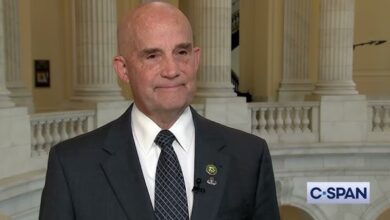South Korean leader: Trump should receive the Nobel Peace Prize
South Korean President Moon Jae-in has suggested that U.S. President Donald Trump should receive the Nobel Peace Prize for his work in ending the 68 year state of war.
Moon made the comment Monday in response to a suggestion that he should receive the award by the widow of late South Korean President Kim Dae-jung, who was awarded the Nobel Peace Prize in 2000 after a summit with then North Korean leader Kim Jong Il.
The South Korean leader has repeatedly praised Trump as the sole reason they are so close to achieving true peace on the peninsula. When President Trump ratcheted up rhetoric last year as N. Korea continued to fire missiles and test nuclear explosions, liberal pundits at the time accused him of bringing the world to the edge of a nuclear holocaust with his talk of “Rocket Man”. In actuality, just the opposite happened according to political scientists today. Trump’s rhetoric is now credited with sending a message to Kim Jon Il that the era of weak American response to North Korea’s threats was over. It brought the North’s Communist leader to the table and resulted in a suspension of all testing.
Trump may visit personally with the North’s leader in the coming weaks even suggesting they meet in the no-man area of the DMZ.
Moon held a summit with current leader Kim Jong Un last week in which Moon and Kim, the son of Kim Jong Il, walked together across the tense border of the DMZ and agreed to a list of initiatives meant to ease animosity. Moon added to the suggestion of Nobel glory by saying, “President Trump can take the Nobel prize. The only thing we need is peace,” according to the South’s presidential office.
South Korea also said Monday that it will remove propaganda-broadcasting loudspeakers from the border with North Korea this week as the rivals move to follow through with their leaders’ summit declaration that produced reconciliation steps without a breakthrough in the nuclear standoff.
During their historic meeting Friday at a Korean border village, Kim and Moon agreed to end hostile acts against each other along their tense border, establish a liaison office and resume reunions of separated families. They also agreed to achieve a nuclear-free Korean Peninsula, but failed to produce specific time frames and disarmament steps.
South Korea had already turned off its loudspeakers ahead of Friday’s summit talks, and North Korea responded by halting its own broadcasts.
The two Koreas had been engaged in Cold War-era psychological warfare since the North’s fourth nuclear test in early 2016. Seoul began blaring anti-North Korean broadcasts and K-Pop songs via border loudspeakers, and North Korea quickly matched the action with its own border broadcasts and launches of balloons carrying anti-South leaflets.
Seoul’s announcement came a day after it said Kim told Moon during the summit that he would shut down his country’s only known nuclear testing site and allow outside experts and journalists to watch the process.
South Korean officials also cited Kim as saying he would be willing to give up his nuclear programs if the United States commits to a formal end to the Korean War and a pledge not to attack the North. Kim had already suspended his nuclear and missile tests while offering to put his nuclear weapons up for negotiations.
The closing of the Punggy-ri test site, where all six of North Korea’s atomic bomb tests occurred, could be an eye-catching disarmament step by North Korea. But there is still deep skepticism over whether Kim is truly willing to negotiate away the nuclear weapons that his country has built after decades of struggle.
Kim could offer more disarmament concessions during his meeting with Trump, expected in May or June, but it’s unclear what specific steps he would take. Some experts say Kim may announce scraping North Korea’s long-range missile program, which has posed a direct threat to the United States.
As for the Nobel Peace Prize, some say its time has come and gone. It lost considerable credibility when it was awarded to President Barack Obama just months after he was sworn in and before any real foreign policy achievements were realized. After eight years in office, observers asked “where’s the peace?” as wars in Afghanistan and Iraq dragged on, the U.S. became involved militarily in Syria and as Iran and North Korea were allowed to continue ballistic missile testing. The Obama administration was also criticized for its heavy use of drones which killed thousands of civilians during strikes in Iraq, Syria and Afghanistan.








